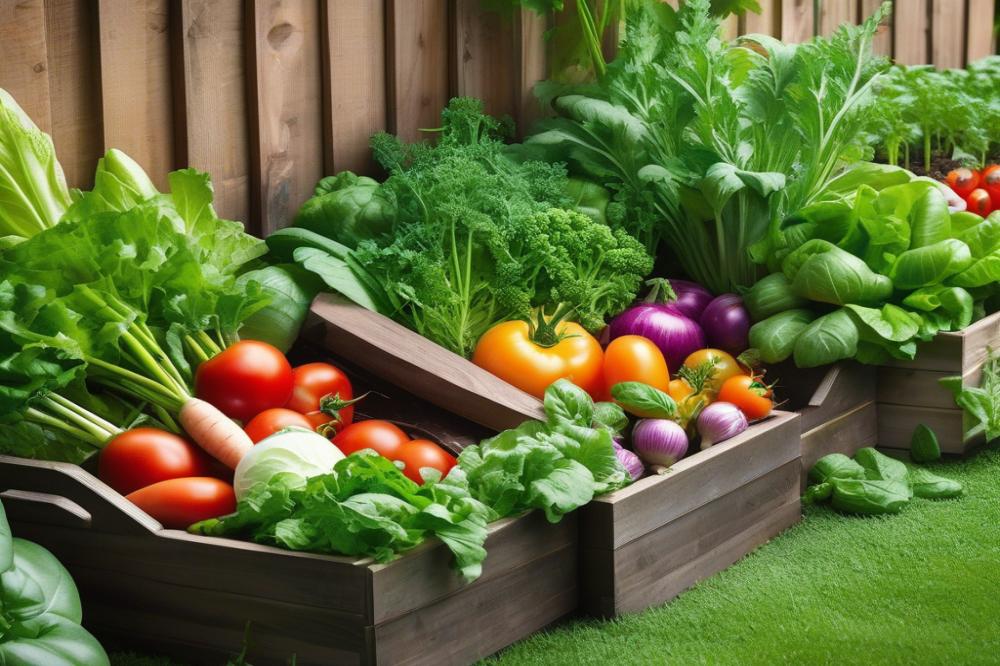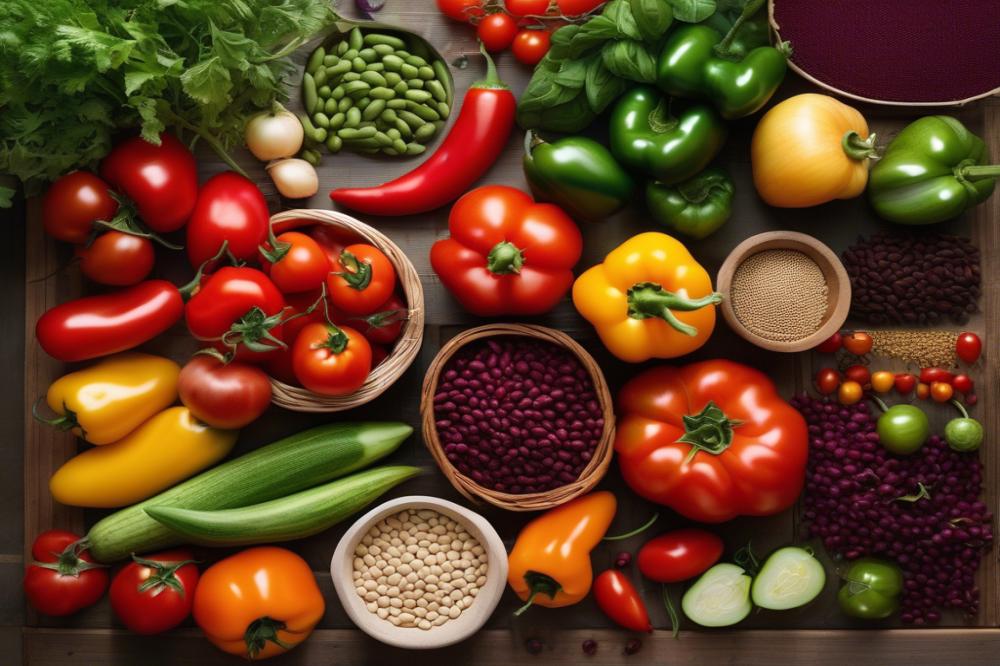The Benefits of Using Compost for tomato plants
Compost plays a crucial role in the world of organic gardening. Gardeners who wish to grow healthy and vibrant plants often turn to this natural material. It enhances soil health by adding essential nutrients that plants require for growth. When it comes to cultivating tomato plants, the importance of compost becomes even more pronounced. Using compost can lead to improved yield and robust plant growth, which every gardener hopes to achieve.
Incorporating compost into the garden is not just about providing nutrients; it also encourages sustainable agriculture practices. By using decomposed organic matter, the need for chemical fertilizers is reduced. Healthy soil offers several advantages, such as better water retention and increased pest resistance. These benefits contribute to eco-friendly gardening methods that are gentler on the environment.
This article will explore the advantages of compost in detail. We will delve into how compost improves soil structure, augments nutrient content, and ultimately leads to thriving tomato plants. Additionally, we will discuss techniques like mulching that can maximize these compost benefits in your garden. Overall, compost can be a game changer for those dedicated to growing successful tomato crops.
Understanding compost benefits


Compost is a rich, dark material created from decomposed organic matter. It includes items like kitchen scraps, yard waste, and other biodegradable materials. When combined, these components break down over time through natural processes, resulting in a nutrient-rich substance that any gardener can use.
Improved soil health is one of the most significant advantages of using compost. It enhances the physical structure of the soil, allowing for better aeration. Healthy soil supports beneficial organisms that are vital for plant growth. These organisms help break down nutrients, making them more available to the tomato plants.
The role of compost in providing nutrients cannot be overstated. It offers essential elements like nitrogen, phosphorus, and potassium, which are crucial for robust tomato growth. When applied, compost acts as a natural fertilizer. Its slow-release nature means that plants can gradually absorb the nutrients needed for optimal development.
Water retention improves significantly when compost is mixed into the soil. This helps during dry periods, as the soil can hold moisture for longer. Furthermore, compost works as a natural mulch, reducing evaporation and maintaining the right level of humidity for the plants. Such benefits align well with methods in sustainable agriculture.
Tomatoes grown with compost often show increased pest resistance. A diverse microbial community in the soil enhances the plant’s ability to fend off harmful insects. This eco-friendly gardening approach minimizes the need for synthetic pesticides, making it safer for the environment.
Ultimately, using compost not only boosts soil health but also leads to an improved yield. More vibrant plants support healthy fruit production. By incorporating compost into their gardening routines, tomato growers can enjoy a productive and sustainable way to cultivate their beloved crops.
Enhancing Plant Growth with Compost


Compost plays a vital role in supporting root development. Rich in organic matter, compost improves soil structure. As a result, this creates a better environment for roots to spread and grow. Healthy roots can absorb water and nutrients much more efficiently. Many gardeners have noticed that plants with strong root systems are more vigorous.
Tomato plants, in particular, demonstrate significant growth rates when compost is added to their soil. The nutrients found in compost provide essential elements that fuel plant growth. Enhanced nutrient availability leads to more robust and healthier plants. Observations show that tomatoes grown in compost-enriched soil often display a lush green appearance. This vibrancy indicates the plants’ vitality.
In terms of yield, utilizing compost can yield impressive results. Tomato plants nurtured with compost frequently produce larger and more abundant fruits. A well-composted garden can support sustainable agriculture practices. When farmers and home gardeners incorporate compost, they make their approach eco-friendly. Improved yields not only benefit the harvest but also promote overall soil health. Mulching with compost also helps retain moisture, giving the tomatoes a better chance to thrive. Furthermore, compost adds organic materials, which can enhance pest resistance in tomato plants. Overall, the journey towards organic gardening becomes more rewarding when using compost.
Soil Health and Sustainability


Composting plays a vital role in sustainable agriculture. It enriches the soil with organic matter, improving overall soil health. Healthy soil can hold nutrients better, which promotes robust plant growth. By using compost, gardeners create a vibrant ecosystem beneath the surface. This natural approach minimizes the need for chemical fertilizers, making gardening more eco-friendly.
Maintaining soil structure is crucial for any gardener. Compost acts like a binder, helping soil particles stick together. This creates spaces for air and water to move, enhancing water retention. Improved water retention helps plants during dry spells. Furthermore, strong soil structure prevents erosion and promotes sustainable land use.
Another impressive benefit lies in the promotion of biodiversity. Compost invites a myriad of organisms, from earthworms to beneficial bacteria. These organisms contribute to nutrient cycling, which means more nutrients for plants over time. Increased biodiversity leads to a healthier soil ecosystem. A rich microbial habitat enhances pest resistance and reduces the chances of disease.
Many gardeners appreciate the practice of mulching with compost as well. It forms a protective layer on the soil that regulates temperature. This barrier helps retain moisture and controls weed growth. Healthy plants benefit from a more balanced environment, which can lead to an improved yield.
The incorporation of compost into organic gardening practices reflects a commitment to sustainability. By replacing synthetic inputs with compost, gardeners promote a healthier world. Healthy soil nurtures plants, which in turn feed us. In this way, composting is a small but significant step towards better environmental practices.
Water Retention and Mulching
Compost plays a crucial role in enhancing water retention within the soil. When added to the ground, it creates a rich environment that allows soil to hold moisture more effectively. This improved water retention is particularly beneficial during dry spells when tomato plants crave hydration. Maintaining consistent moisture levels is vital for strong plant growth and fruit development.
Using compost as mulch offers even more advantages for cultivating tomatoes. This method helps to control weeds, which can compete for nutrients and water. By applying a layer of compost around the base of the plants, you can also regulate soil temperature. Healthier soil promotes better nutrient absorption, leading to an improved yield of delicious tomatoes.
Managing moisture is essential for optimal growth in tomato plants. When plants receive the right amount of water, they develop strong roots that can withstand various stresses. Additionally, compost can help improve soil health over time, making it an important practice in organic gardening. Moist soil can also boost pest resistance, leading to healthier plants that require fewer chemical interventions.
In sustainable agriculture, every detail matters. Compost provides a natural means to enhance both water retention and soil structure. This eco-friendly gardening practice supports the growth of robust tomato plants while maintaining a balance in the ecosystem. Experimenting with compost not only assists in producing bountiful harvests but also enriches the gardening experience.
Pest Resistance and Eco-Friendly Gardening
Using compost can significantly boost pest resistance in tomato plants. Healthy soil is vital for strong plant growth. Compost enriches the soil with organic matter and vital nutrients, which help the plants develop resilience against pests. When tomatoes are well-nourished, they are better equipped to fend off harmful insects. Additionally, compost encourages a diverse range of beneficial organisms. These creatures can help keep pest populations under control, as they naturally prey on harmful insects that threaten your garden.
Eco-friendly gardening practices are becoming increasingly important in today’s world. Incorporating compost into your gardening routine is a sustainable choice. It reduces the need for chemical fertilizers and pesticides, which can harm both the environment and our health. By using compost, you contribute to the reduction of waste. Instead of throwing away food scraps and yard waste, transforming these materials into nutrient-rich compost is a smart way to care for the planet.
Soil health also improves with the addition of compost. Healthy soil retains water better, which is crucial during dry spells. This means less water is needed for your tomato plants, making your gardening efforts more efficient. Additionally, mulching with compost can suppress weeds, giving your plants a better chance to thrive. The result is an improved yield of juicy tomatoes that are both tasty and nutritious.
Composting benefits extend beyond individual gardens. When communities adopt composting practices, they foster a sense of responsibility toward the environment. Community gardens that use compost can enhance local biodiversity. This shift toward sustainable agriculture strengthens neighborhoods. As more people see the value in composting, knowledge spreads, encouraging others to participate in eco-friendly gardening. All these elements together create a healthier environment for everyone.
In summary, utilizing compost for your tomato plants not only enhances pest resistance but also promotes a greener, more sustainable approach to gardening. The plethora of advantages linked to composting can create a positive ripple effect in the community, influencing both our gardens and the world around us.
Final Thoughts on Composting for Your Tomato Plants
Using compost offers your tomato plants countless advantages. Nutrient-rich compost enriches the soil, leading to stronger plants. This natural fertilizer promotes healthy growth and enhances fruit flavor. Additionally, compost improves soil structure, making it easier for roots to spread and absorb water. Furthermore, it helps retain moisture, which is crucial during dry spells.
Gardeners should consider incorporating composting into their routine. Starting a compost pile is simple, and it allows you to recycle kitchen scraps and yard waste. This practice not only benefits your plants but also reduces landfill waste. Think about the positive impact you can have on the environment while growing your own food. By practicing organic gardening, you contribute to a healthier ecosystem.
In the long run, composting boosts both garden sustainability and productivity. Healthy soil leads to healthier plants, which means more delicious tomatoes for your table. Investing time in composting today will yield fruitful rewards tomorrow. As you nurture your garden, remember that composting supports soil health and the overall balance of your garden ecosystem.



